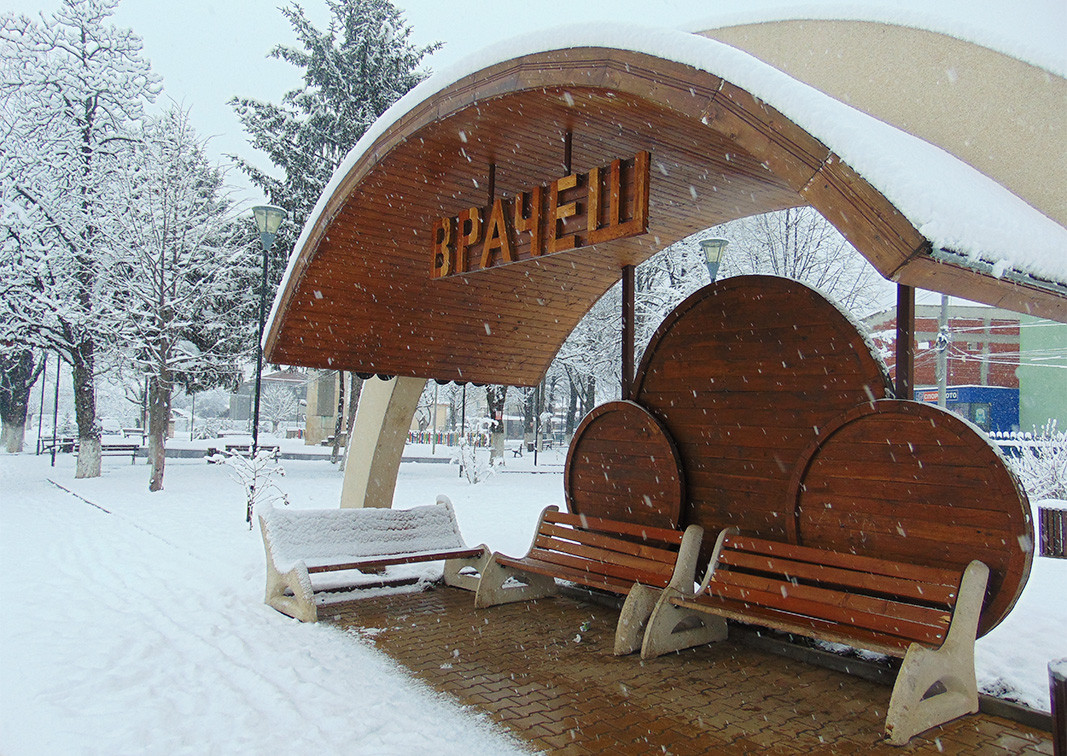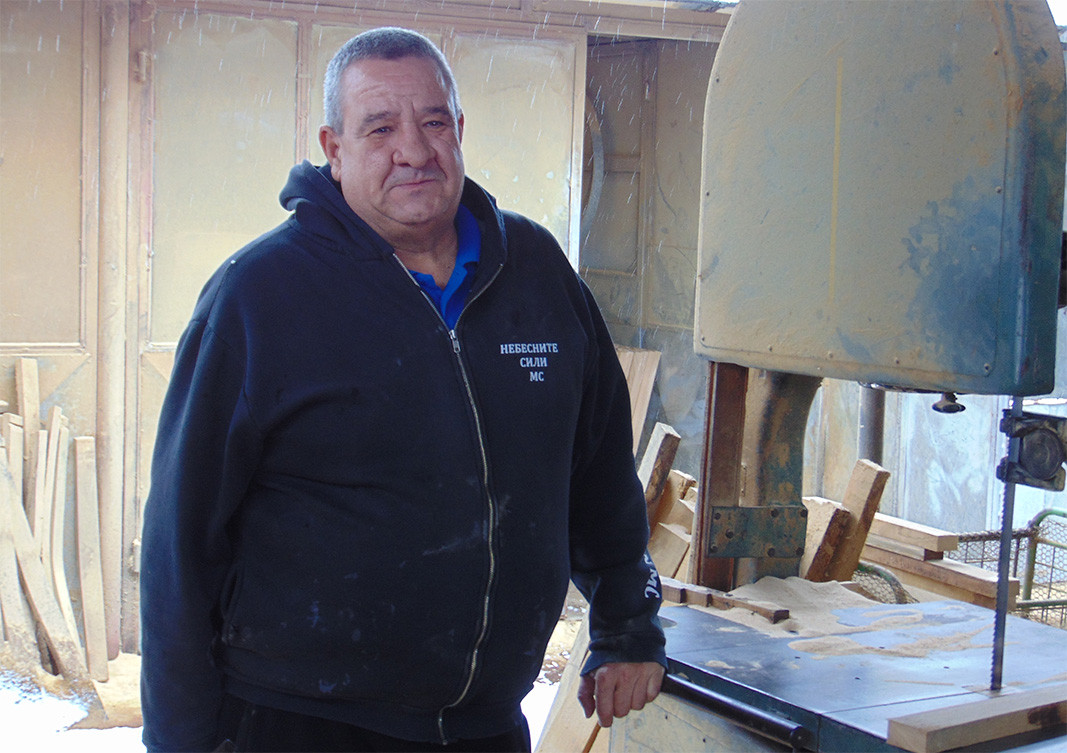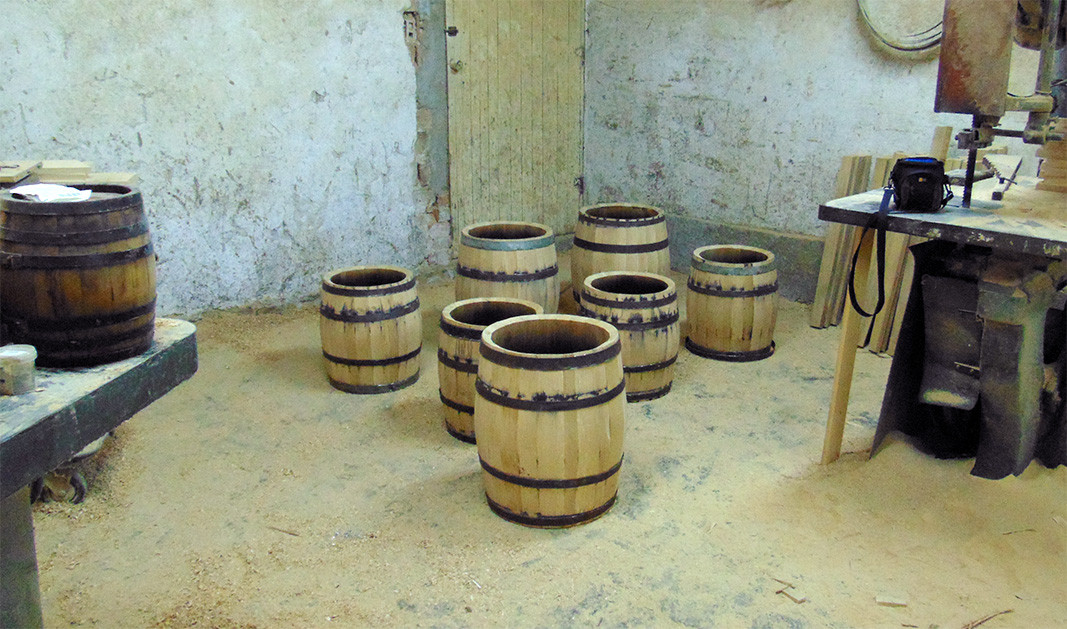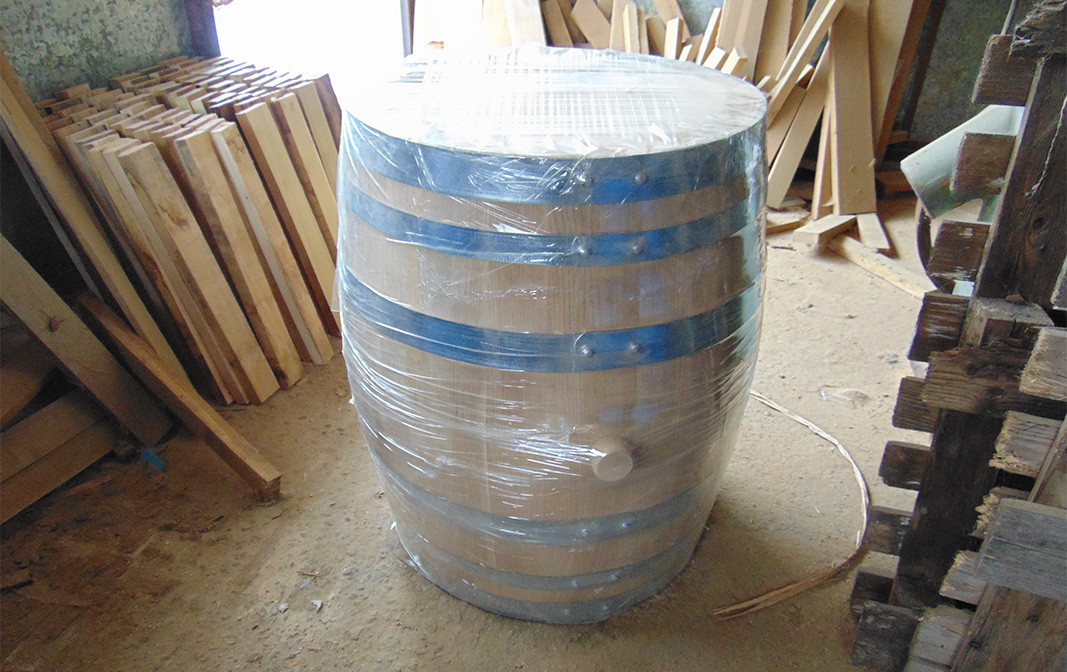Many Bulgarians still make homemade wine and pour it into all kinds of makeshift vessels. But seasoned winemakers always say that it is the barrel that makes the good taste of the wine. A bad barrel may spoil the taste of the best grapes. Wine without a barrel feels naked, it is like a man with no clothes - unpresentable.
Handcrafting wooden barrels is a complex and challenging job. We talk to to master coopers from the Bulgarian village of Vrachesh, where this old craft is still practiced. A long time ago, there were over 80 coopers' workshops in this village. Times change and as old master coopers die the workshops close one after the other. Still, there are younger people who take up the craft, so the livelihood of the communityis preserved.

Milcho Vladimirov has been a cooper for 35 years now. It took him 12 years of hands-on training before he could take the exam at the Chamber of Crafts. "We make wooden casks, tubs, barrels, flower pots - whatever the customer is looking for, " says the craftsman. He may even try and assemble a human being as long as he has the drawing, Milcho jokes.
We asked him how long does a wood barrel last?

"The "lifespan" of a wooden barrel is quite long, but the quality declines at a different pace, depending on whether we use it to age wine, grape brandy or whiskey. For instance in Bulgaria we age 6 to 7 wine harvests in the same barrel. While in France they use the same barrel only 2 to 4 times on average. But for a homemade wine and if you take good care of your barrel, it can last you a lifetime."
The biggest barrel Vladimirov made weighed 5 tonnes. It wasn't easy, the cooper says. But premanufacturing is a key part of barrel making.
"The wood needs to be seasoned, you must sand the surfaces, the staves are joined and planed, and then the barrel must be toasted. We need to be very careful. We sprinkle with water to give it elasticity. The wood needs to shrink slowly – it is tricky, but once you’ve learnt how to do it, there will be no problem. First we assemble the barrel, then it is toasted over fire, the heads are fitted, and then we sand. Every master cooper is happy when he sees the final product."
20 years ago, he started recycling old barrels "for our wineries, because we are not such a rich country after all", says the master and explains the technology:
"We take out the hoops and the heads. We sand off 1 or 2 millimeters of the inside of the staves, then reassemble and bake again. This way the barrel may be used for another 3-4 years. Tops.

We have befriended master coppers from France. They come here, we go to France. But in France they have technologies, machines. 10 years ago, the cost of an assembly line was 250,000-350,000 euro. Without a stable market for us, Bulgarians, this investment is impossible," explains master Milcho.
According to Milcho Vladimirov, the quality of the barrels in both machine and traditional production depends on the craftsman, not the machines.
"It is important which region the oak is from, and how old it is. Seasoning takes at 24 to 36 months. The tree must have grown for at least 70 years for a good barrel,"Milcho says.

Even before the fall of the Communist regime in 1989, the cooper masters in Vrachesh were private craftsmen – finding their own clients and looking for materials on their own.
"We had a good trade with Russia - we used to export barrels, small casks of 5 to 100 liters, but things got tense there. Nowadays we export to Spain, Greece, and France. We have exported to America, even to Japan. Since the pandemic, the market has shrunk a bit, but it is still there. We are lucky to be able to survive these difficult times," says the master. His great concern today is to whom he will pass on the craft. He says that young people prefer faster and easier money, while in cooperage things are a little slower. But it is a good business.
English version: Elizabeth Radkova
Photos: Ivo Ivanov, BGNESOver 3.5 million Ukrainians have arrived in or passed through Bulgaria since the beginning of the war. Nearly 200,000 people have found temporary shelter in the country, announced Anna Tertychna from the Ukrainian Embassy in Bulgaria. She..
At the Bulgarian Embassy in London, Prof. Bettany Hughes presented excerpts from the new BBC series - Wonders of Bulgaria. Prof. Bettany Hughes is the author of two episodes of the documentary. Hughes is a historian, writer, author of..
According to the Annual Report on the Health Status of Bulgarian Citizens for 2023, t he main cause of death in Bulgaria is diseases of the cardiovascular system (61.1%), followed by oncological diseases (16.5%) and diseases of the respiratory system..
Modernizing critical thinking skills, fact-checking skills and media literacy are essential for society, especially for young people in Bulgaria - the..

+359 2 9336 661
